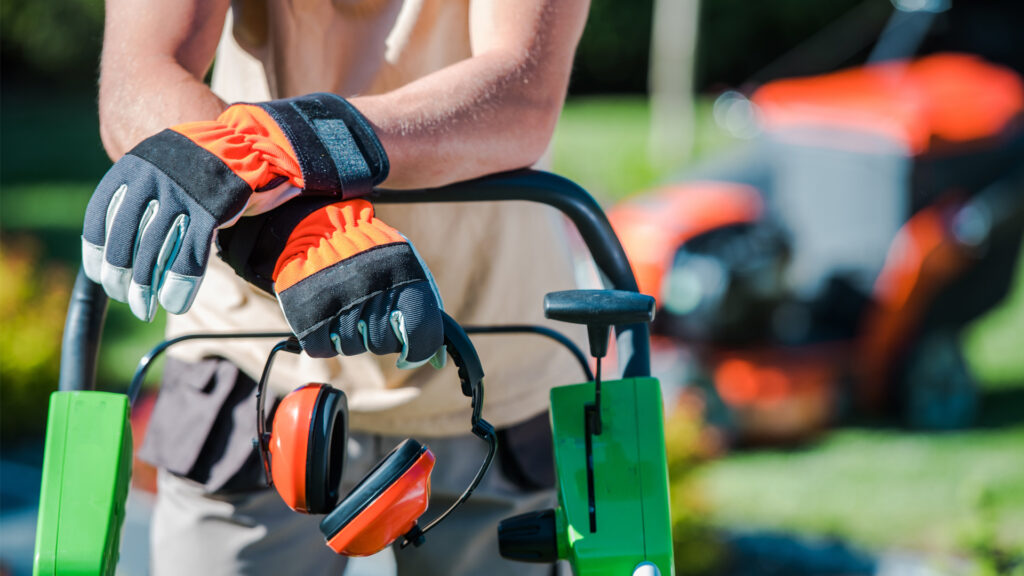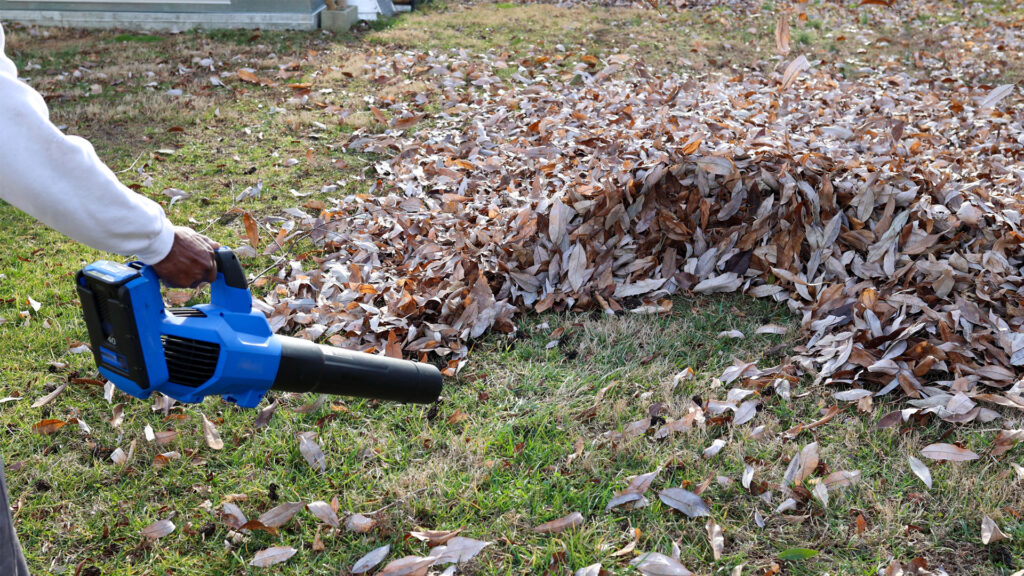By Kristan Reynolds, The Invading Sea
From leaf blowers to pressure washers, battery-powered outdoor equipment is on the rise and replacing its gas-powered counterparts throughout the United States.
Gas-powered outdoor equipment releases emissions that pose health risks and contribute to climate change, according to Tony Dutzik, associate director and senior policy analyst for the research firm Frontier Group. But an increase in the availability of electric equipment, along with state and local bans on leaf blowers and small gas engines, are driving the electrification of outdoor power equipment in the U.S.
“Historically, we’ve adopted gas-powered lawn equipment because it was effective at doing its job, and we didn’t have a choice,” Dutzik said. “Right now, electric equipment is becoming much more capable and much more affordable, which makes this transition from gas-powered lawn equipment to electric lawn equipment — for some forms of equipment — almost a no-brainer, and for others now a live possibility.”
The cost of electric equipment poses an obstacle for some businesses to make the transition. But proponents say that maintenance needs are lower for electric equipment, which also benefits workers whose health is harmed by gas-powered equipment.

“They’re breathing those toxic fumes every single day; (gas) machines vibrate so they develop tremors after a while,” said Christopher Regis, CEO of Suntek Lawn Care, a fully electric landscaping company based in Orlando. “They have insomnia because they have ringing in their ears from the noisy machines that they’re subject to work the whole day.”
In addition to being fume-free, Regis says that electric lawn care machines are also lighter in weight and generate less vibration. They are also significantly quieter than gas machines — which enhances safety for workers and reduces disturbance for clients.
The noise and pollution from gas-powered leaf blowers have led to bans on the machines in cities across the country. Winter Park, Florida, initially instituted such a ban before putting the issue in a referendum for voters to consider in 2025.
The Florida Legislature this year tried to preempt cities from passing such bans and funded a $100,000 study of leaf blowers, before Gov. Ron DeSantis vetoed the measure.
According to Dutzik, it is especially important for Florida to transition away from fossil-fuel equipment, as the state ranked first in the nation for fine particulate and nitrogen oxide emissions from lawn and garden equipment, which contribute to ozone pollution.
Dutzik said gas-powered lawn equipment is a “surprisingly large” contributor to overall air pollution, which negatively impacts air quality and accelerates climate change. This pollution is especially concerning as it occurs where people live and breathe, he said.
“Operating a commercial lawn mower for an hour produces about as much smog forming pollution as driving 300 miles in a car,” Dutzik said, referencing data from a 2023 report that he co-authored on the electrification of lawn care. “Using a commercial leaf blower, it’s as much smog-forming pollution as driving 1,100 miles in a car.”
Beyond the lawn care industry, the pressure washing sector is also beginning to shift toward electrification. Jimmy Welch, the engineering manager for TUFFY Cleaning Systems — which has a location in Fort Pierce, Florida — developed a battery-powered industrial pressure washer.
Welch said the machines “provide the cleaning performance better because when you take a gasoline engine, the more hours you put on it, the less efficiency you’re getting out of that engine because it has wear and tear.”
For both electric lawn care and battery-powered pressure washers, maintenance needs are lower compared to gas-powered machines, according to Dutzik and Welch. With recent advancements, there are now commercial-grade electric machines with significant power and run times that can last an entire workday.

However, these commercial machines are typically more expensive than residential grade machines. Welch said “the No. 1 obstacle is the price” when getting businesses to adopt TUFFY’s battery-powered industrial pressure washer.
“It’s not affordable yet and I don’t know if it will get affordable or not for the technology that we’re using,” he said.
Welch has concerns regarding small business owners who may struggle to cover the financial burden of switching to electric, as well as individuals trying to start a pressure-washing business who might not have the funds to invest in electric equipment upfront.
“Regulation is how they’re pushing it, which I don’t agree with,” he said. “I would rather it be used because somebody has a need for it.”
In order to address challenges related to cost and education in electric lawn care, Regis founded the Suntek Green Foundation, a nonprofit organization that hosts city events in the Orlando area to help promote the transition to an electric and sustainable lawn care industry.
“We partner (attendees) with electric manufactured tools; show them solutions,” Regis said. “We find them the capital so that they can go electric.”
Dutzik said local governments around the U.S. have created financial incentives and have city employees lead by example by utilizing electric lawn care. He argues that the long-term benefits outweigh the initial obstacles.
“The benefits are so great in and of themselves it makes changing (to electric) desirable whether or not you care about climate,” Dutzik said. “But if you do care about climate, everything that we can do to switch over fossil fuel equipment — whether it’s lawn mowers or leaf blowers or cars or heavy-duty vehicles — everything that we can do to electrify those uses is an important step towards addressing climate change.”
Kristan Reynolds is a Florida Atlantic University senior majoring in multimedia journalism and minoring in communication studies who is reporting for The Invading Sea during the summer 2024 semester.
Sign up for The Invading Sea newsletter by visiting here. If you are interested in submitting an opinion piece to The Invading Sea, email Editor Nathan Crabbe at ncrabbe@fau.edu



